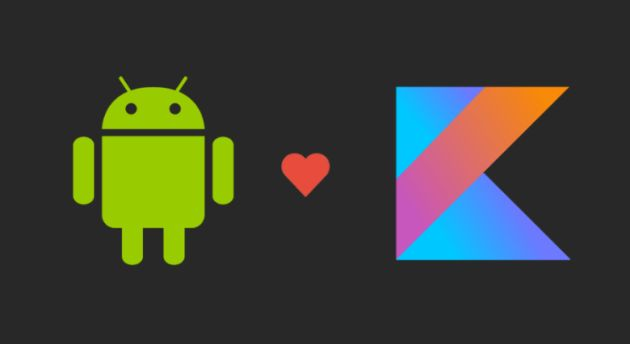
摒弃反模式:使用Kotlin委托优化Android BaseActivity
在Android开发中,许多开发者习惯于创建名为"BaseActivity"或"BaseFragment"的基类,以便在所有Activity或Fragment中共享一些通用行为。这种方法乍一看似乎是个好主意,但实际上它是一种反模式。本文将深入探讨这个问题,并介绍如何通过Kotlin委托来解决这个问题。
什么是反模式?
"BaseActivity"或"BaseFragment"这类命名模式从一开始就是一种反模式。这类基类通常包含了多种职责,使得代码难以维护和扩展。其主要问题在于:
- 职责不明确:命名应明确反映类的职责,而"BaseActivity"这种命名模糊不清,无法表明类的实际功能。
- 职责混杂:一个基类往往包含多种职责,使得子类难以理解和修改。
- 继承层次复杂:当项目规模增大时,复杂的继承层次会导致代码难以维护。
反模式示例
假设我们需要在用户离开和返回界面时记录日志,并在某些Activity中处理新的Intent。常见的做法是创建一个父Activity,例如:
kotlin
open class AnalyticsActivity : AppCompatActivity() {
override fun onPause() {
super.onPause()
// Log user leaving
}
override fun onResume() {
super.onResume()
// Log user returning
}
}
open class IntentHandlerActivity : AppCompatActivity() {
override fun onNewIntent(intent: Intent?) {
super.onNewIntent(intent)
// Handle new intent
}
}当需要同时实现这两个功能时,很多开发者会创建一个"BaseActivity"来包含所有职责:
kotlin
open class BaseActivity : AppCompatActivity() {
override fun onPause() {
super.onPause()
// Log user leaving
}
override fun onResume() {
super.onResume()
// Log user returning
}
override fun onNewIntent(intent: Intent?) {
super.onNewIntent(intent)
// Handle new intent
}
}这种做法将不同的职责混杂在一起,导致代码难以维护。
Kotlin委托的解决方案
Kotlin提供了原生的委托支持,使我们可以通过委托模式来解决上述问题。委托模式允许我们将一个对象的功能委托给另一个对象,从而实现代码复用和灵活的对象组合。
委托日志功能
首先,我们需要定义一个接口和其实现,用于记录生命周期事件:
kotlin
interface AnalyticsLogger {
fun registerLifecycleOwner(owner: LifecycleOwner)
}
class AnalyticsLoggerImpl : AnalyticsLogger, LifecycleEventObserver {
override fun registerLifecycleOwner(owner: LifecycleOwner) {
owner.lifecycle.addObserver(this)
}
override fun onStateChanged(source: LifecycleOwner, event: Lifecycle.Event) {
when (event) {
Lifecycle.Event.ON_START -> println("User opened the screen.")
Lifecycle.Event.ON_PAUSE -> println("User left the screen.")
else -> Unit
}
}
}然后,我们可以在Activity中使用委托:
kotlin
class MainActivity : ComponentActivity(), AnalyticsLogger by AnalyticsLoggerImpl() {
override fun onCreate(savedInstanceState: Bundle?) {
super.onCreate(savedInstanceState)
registerLifecycleOwner(this)
}
}在这里,我们没有继承任何父类,而是通过委托将日志功能委托给AnalyticsLoggerImpl。这样,任何实现LifecycleOwner的类都可以轻松地添加日志功能,而无需创建复杂的基类。
委托Intent处理功能
同样的,我们可以为处理Intent定义一个接口和实现:
kotlin
interface DeepLinkHandler {
fun handleDeepLink(activity: Activity, intent: Intent?)
}
class DeepLinkHandlerImpl : DeepLinkHandler {
override fun handleDeepLink(activity: Activity, intent: Intent?) {
// Handle the intent
}
}在Activity中使用委托:
kotlin
class MainActivity : ComponentActivity(),
AnalyticsLogger by AnalyticsLoggerImpl(),
DeepLinkHandler by DeepLinkHandlerImpl() {
override fun onCreate(savedInstanceState: Bundle?) {
super.onCreate(savedInstanceState)
registerLifecycleOwner(this)
}
override fun onNewIntent(intent: Intent?) {
super.onNewIntent(intent)
handleDeepLink(this, intent)
}
}通过这种方式,我们可以轻松地在Activity中添加多个不同的功能,而无需创建一个包含所有职责的"BaseActivity"。
结论
使用Kotlin的委托模式,我们可以避免反模式"BaseActivity"的问题,实现职责单一、易于维护和扩展的代码结构。通过定义接口和其实现,并在需要的地方进行委托,我们可以灵活地组合对象功能,提升代码的可读性和可维护性。
希望本文能帮助你更好地理解和使用Kotlin委托,从而编写出更优雅和高效的Android代码。如果你有任何问题或建议,欢迎在评论区交流讨论。